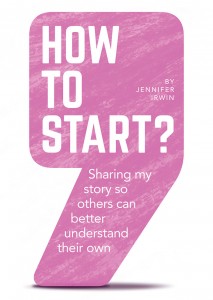One of the definitions or characterizations of Motivational Interviewing (MI) is that it involves arranging conversations so people talk themselves into change based on their own values and interests (Miller and Rollnick, Motivational Interviewing: Helping People Change, 2013, p. 4). ‘Arranging conversations’ seems an apt descriptor of the process involved in taking up the spirit of MI. Like most things we do in life, entering into MI is a deliberate process; it is, in many ways, an attitude or an intentional way of being in a conversation. Clearly, not all conversations are MI-related. In order for a conversation to be MI, either or both of two things need to happen – you work with a client either to deepen her learning and/or to get your client into an action, some behavioural change to which she commits. Sometimes the learning might seem like resistance or that nothing is happening just because it might not be an overt action. Good, open-ended questions can create profound learning. And part of the MI process is about working with clients in making decisions, decisions that move clients from status talk to change talk and ultimately to enable them to make the kinds of change/s they want to make. One of our colleagues was accustomed to remark on the process of making decisions that ‘not to decide was, in fact, to decide.’ If clients remain ambivalent, they are not making an apparent decision; however, the reality is, they are deciding. Years of experience in working with clients have lead us to this truism ~ once you decide, everything happens. Making health decisions and committing to behaviour change/s are not easy. We want to use this blog to offer one example of a decision-making process that was very much for health. The case in point is one involving the co-founder of The Monarch System Inc., Dr Jennifer Irwin and it speaks poignantly both to evoking transformation and aligning with one’s values, two elements that are key aspects of MI. The piece was written as a commentary in the Western News, a newspaper that is distributed to the academic community at and alumni of Western University in London, Canada. Here, in the ‘How to Start’ link below, is her decision-making story, written from a place of openness, coeur-age, and vulnerability with full intention to invite other persons to make decisions for health, ones that suit their values, interests, and beliefs:
Events
- Monarch Level 1 Introductory Motivational Interviewing & Coaching Tools for Memorial University Entry-to-Practice 3rd year PharmD Students~ 09 Sept 2024 {via Zoom} on September 9, 2024 1:00 am
- Monarch Level 1 Introductory Motivational Interviewing & Coaching Tools for Memorial University Entry-to-Practice 4th year PharmD Students~ 11 Sept 2024 {via Zoom} on September 11, 2024 1:00 pm
- Monarch Level 1 Introductory Motivational Interviewing & Coaching Tools for MUN Pharmacists ~ 14 Sept 2024 {via Zoom} on September 14, 2024 12:30 pm
- Monarch Level 1 Workshop on Motivational Interviewing & Coaching Tools for Healthcare Professionals ~ WECHC ~ Sept 23 & 30 2024 {viaZoom} on September 23, 2024 9:00 am
- Monarch Level 2 Advanced Workshop on Motivational Interviewing & Coaching Tools for Healthcare Professionals ~ WECHC ~ Dec 2 & 9 2024 {viaZoom} on December 2, 2024 9:00 am

